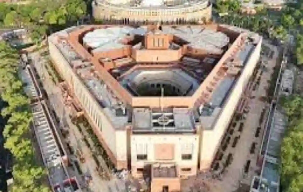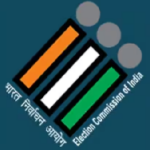The year 2024 ends with two epoch-making legislation that may change the political dynamics of the country like never before. The 129th Constitution Amendment Bill, or the ‘One Nation One Election’ Bill, as it is called, and the Waqf Amendment Bill 2024 are most likely to change not only the nature and structure of the Parliament and the Indian Constitution in a big way, but they may also have far-reaching consequences for Indian society.
The two bills are most likely to be considered by the Parliament during the Budget Session, which convenes in February 2025.
Parliament May Take Up Waqf Bill In Budget Session
The Waqf (Amendment) Bill, 2024, seeking to repeal the Mussalman Wakf Act, 1923, and amend the Waqf Act, 1995, was tabled at the floor of the Lok Sabha on August 8, 2024.
After heated and acrimonious debate in the lower house of the Parliament, the contentious bill was referred to the Joint Parliamentary Committee. The committee under the Chairmanship of BJP MP Jagadambika Pal held its first meeting on November 27, 2024.
Why Has Become Waqf Amendment Bill Contentious?
The Waqf Amendment Bill envisages changes in the composition of the Central Waqf Council and Waqf Boards to include non-Muslim members.
It also replaces the Survey Commissioner by the Collector and grants him powers to conduct surveys of waqf properties. According to the bill, the government property identified as waqf will no longer be waqf.
The Bill provides that the collector will determine ownership of disputed properties, the tribunal’s decisions will not be final and it can be challenged in a High Court.
There have been heated debates, acrimonies and even physical violence in the JPC meetings. Nishikant Dubey of the BJP suggested that the JPC may be extended. The JPC is most likely to submit its report in February just before the beginning of the Budget session.
The Waqf (Amendment) Bill has become the bone of contention because while the BJP claims that the then-ruling party brought the Waqf Bill with the sole aim of appeasing the Muslims, the opposition has accused the BJP of targeting the largest minority community of the country.
The Budget session is sure to be stormy when the Waqf (Amendment) Bill is taken up in the Parliament.
‘One Nation One Election’ Likely To Raise Storm
The most contentious ‘One Nation One Election’ Bill is sure to raise a huge storm in the Parliament when it is debated in the House.
The bill is a complicated one as it needs a special majority, which means a majority that should be more than the two-thirds of the members present and voting.
Considering the present composition of the Parliament, the bill will require 362 votes in Lok Sabha and 162 in Rajya Sabha. However, the ruling coalition of the NDA does not have so many seats in the House.
Further, the 129th Constitution Amendment Bill will have to be ratified by more than half of the state legislatures. Though the NDA has its Chief Ministers in as many as 14 states, some of its constituents may find it difficult to support the bill that has been accused of violating the federal character of the Constitution. The bill has also been called an instrument to kill the regional parties.
Changes 129th Constitution Amendment Bill May Bring
The 129th Constitution Amendment Bill has the provisions of holding the elections for the Lok Sabha and state assemblies together. It will changes Articles 54, 55, 73, 162, 241 and 279A.
Similarly, Chapter IV of Part V, Chapter V of Part VI, or Chapter I of Part XI will have to be amended, if the bill is approved.
If the ‘One Nation One Election’ Bill is approved, the Lists in the Seventh Schedule, the representation of states in the Parliament and the provisions of Article 368 will have to be changed.
The proposed Constitution Amendment Bill has the potentialities to change the nature of the elections as the regional parties may lose significance. It has been alleged that the BJP has planned to finish the regional parties and grab its support base by holding simultaneous elections.
The two bills may make the year 2025 as the most momentous year for many reasons, including bringing far-reaching consequences in the political dynamics and changing the Indian Constitution in a big way.



